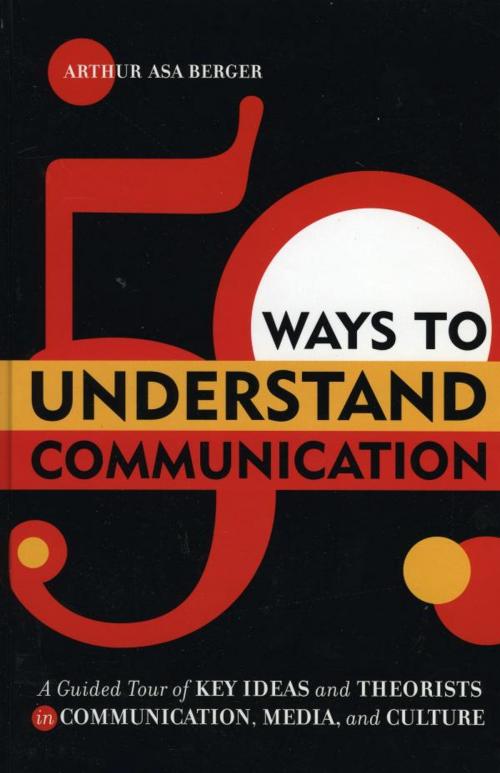50 Ways to Understand Communication
A Guided Tour of Key Ideas and Theorists in Communication, Media, and Culture
Fiction & Literature, Literary Theory & Criticism, Theory| Author: | Arthur Asa Berger, San Francisco State University | ISBN: | 9780742569218 |
| Publisher: | Rowman & Littlefield Publishers | Publication: | February 20, 2006 |
| Imprint: | Rowman & Littlefield Publishers | Language: | English |
| Author: | Arthur Asa Berger, San Francisco State University |
| ISBN: | 9780742569218 |
| Publisher: | Rowman & Littlefield Publishers |
| Publication: | February 20, 2006 |
| Imprint: | Rowman & Littlefield Publishers |
| Language: | English |
Is consciousness like an iceberg? Does advertising lead to the commodification of humans? What is the hidden meaning of fairy tales? In 50 Ways to Understand Communication, Arthur Asa Berger familiarizes readers with important concepts written by leading communication and cultural theorists, such as Saussure, LZvi-Strauss, de Certeau, Lasswell, McLuhan, Postman, and many others. Organized in fifty short segments, this concise guide covers a wide range of important ideas from psychoanalysis and semiology to humor, 'otherness,' and nonverbal communication. Berger's clear explanations and examples surround this assortment of influential writing, walking the uninitiated through these sometimes dense theoretical works. His selections and commentary will challenge readers to reconsider the role of communication in our culture. This engaging, accessible book is essential for students of communication and anyone interested in how we communicate in a world of rapidly changing media.
Is consciousness like an iceberg? Does advertising lead to the commodification of humans? What is the hidden meaning of fairy tales? In 50 Ways to Understand Communication, Arthur Asa Berger familiarizes readers with important concepts written by leading communication and cultural theorists, such as Saussure, LZvi-Strauss, de Certeau, Lasswell, McLuhan, Postman, and many others. Organized in fifty short segments, this concise guide covers a wide range of important ideas from psychoanalysis and semiology to humor, 'otherness,' and nonverbal communication. Berger's clear explanations and examples surround this assortment of influential writing, walking the uninitiated through these sometimes dense theoretical works. His selections and commentary will challenge readers to reconsider the role of communication in our culture. This engaging, accessible book is essential for students of communication and anyone interested in how we communicate in a world of rapidly changing media.















